Bill Regulating Family Pension Beneficiaries' Status on Parl. Agenda
ZAGREB, 6 July, 2021 - The Croatian Pension Insurance Institute (HZMO) said on Tuesday that the number of pension insurance contributions had been on the rise for five months in a row, and the number of insurees was higher by 3.54% at the end of this June compared to June 2020.
The government-sponsored amendments were forwarded to the parliament at the session of the Andrej Plenković cabinet on 1 July.
In May, there were 216,000 family pension beneficiaries, and most of them were surviving spouses whose average monthly pension allowance was HRK 2,096, which was below the average pension. For instance, in May, pension associations reported that the average pension paid out for February stood at HRK 2,567.
The budget allocation for this purpose has been ensured for 2022 and 2023.
According to the government's estimates, this year, an estimated 1,100 recipients of family pensions can exercise this right to work part-time and continue receiving family pensions. In 2022, the numbers can rise to 3,200 and in 2023 to 4,100 beneficiaries.
(€1 = HRK 7.484635)
For more about politics in Croatia, follow TCN's dedicated page.
Von der Leyen to Visit Zagreb Thursday after European Commision Okays Croatia's Recovery Plan
ZAGREB, 6 July, 2021 - Prime Minister Andrej Plenković said on Monday that the European Commission's President Ursula Von der Leyen would arrive in Zagreb on Thursday after the European Commission approved Croatia's national recovery and resilience plan.
President von der Leyen has decided to personally deliver the national recovery and resilience plan to each of the 27 member states.
PM Plenković said that the green-light to Croatia's €6.3 billion recovery plan was an important encouragement.
"We are satisfied with the finalisation of the process before we expected," Plenković said on Monday evening.
In early June, Croatia and another four EU member-states -- Slovenia, Poland, Sweden and Romania -- asked the European Commission to extend a deadline for the assessment of their national recovery and resilience plans.
The EC had two months to assess these plans that set out the reforms and public investment projects that each Member State plans to implement with the support of the Recovery and Resilience Facility (RRF).
The rules envisage that member-states can request a reasonable extension of time for the assessment of national recovery and resilience plans after the documents are submitted.
The Commission received Croatia's plan on 15 May, and Zagreb "has requested a total of almost €6.4 billion in grants under the RRF", the EC says on its website.
The Croatian plan is structured around five components: green and digital economy, public administration and judiciary, education, science and research, labour market and social protection, healthcare. It also encompasses one initiative on building renovation.
The plan includes measures to improve business environment, education, research and development, energy-efficiency in buildings, zero-emission transport and the development of renewable energy sources.
Projects in the plan cover the entire lifetime of the RRF until 2026. The plan proposes projects in all seven European flagship areas, the EC added.
For more about politics in Croatia, follow TCN's dedicated page.
Zagreb Gay Pride 2021 Analysis: Issues Still Exist, Pride Celebrates History and Present Equality
July 5, 2021 - Gay rights in Croatia still have challenges ahead, but even if all problems are resolved, Pride should remain a commemorative event. A look at the history of gay culture in Croatia and the current climate in this Zagreb Gay Pride 2021 Analysis by TCN reporter Ivor Kruljac.
Zagreb Pride is the oldest pride in Croatia. First held in 2002, it attracts more and more people every year, from LGBTQ members, straight people that support gay rights to NGOs, human rights activists, and even politicians from the left and liberal specter. Over the years, the event grew from a one-day pride to Pride month, full of educational and entertaining events regarding LGBTQ issues and a chance for people with the same preferences to meet and celebrate who they are.
Pride month is marked in June in honor of the 1969 Stonewall Uprising in Manhattan.
„The Stonewall Riots, also called the Stonewall Uprising, began in the early hours of June 28, 1969, when New York City police raided the Stonewall Inn, a gay club located in Greenwich Village in New York City. The raid sparked a riot among bar patrons and neighborhood residents as police roughly hauled employees and patrons out of the bar, leading to six days of protests and violent clashes with law enforcement outside the bar on Christopher Street, in neighboring streets, and in nearby Christopher Park. The Stonewall Riots served as a catalyst for the gay rights movement in the United States and around the world“, reminds History.com.
When it comes to LGBTQ in Croatia, as you can expect with the ideological divide Croatians generally experience, there are mixed feelings on the issue.
From street violence to a family event
Participating in the first Pride in 2002 required that if you are a man loving a man ready to openly admit it, you had to have balls.
The attacks by skinheads and other „morally concerned citizens were fierce and violent. Participants truly needed police protection which was provided but also needed to be careful to not get hit by the incoming rocks that were thrown among the participants.
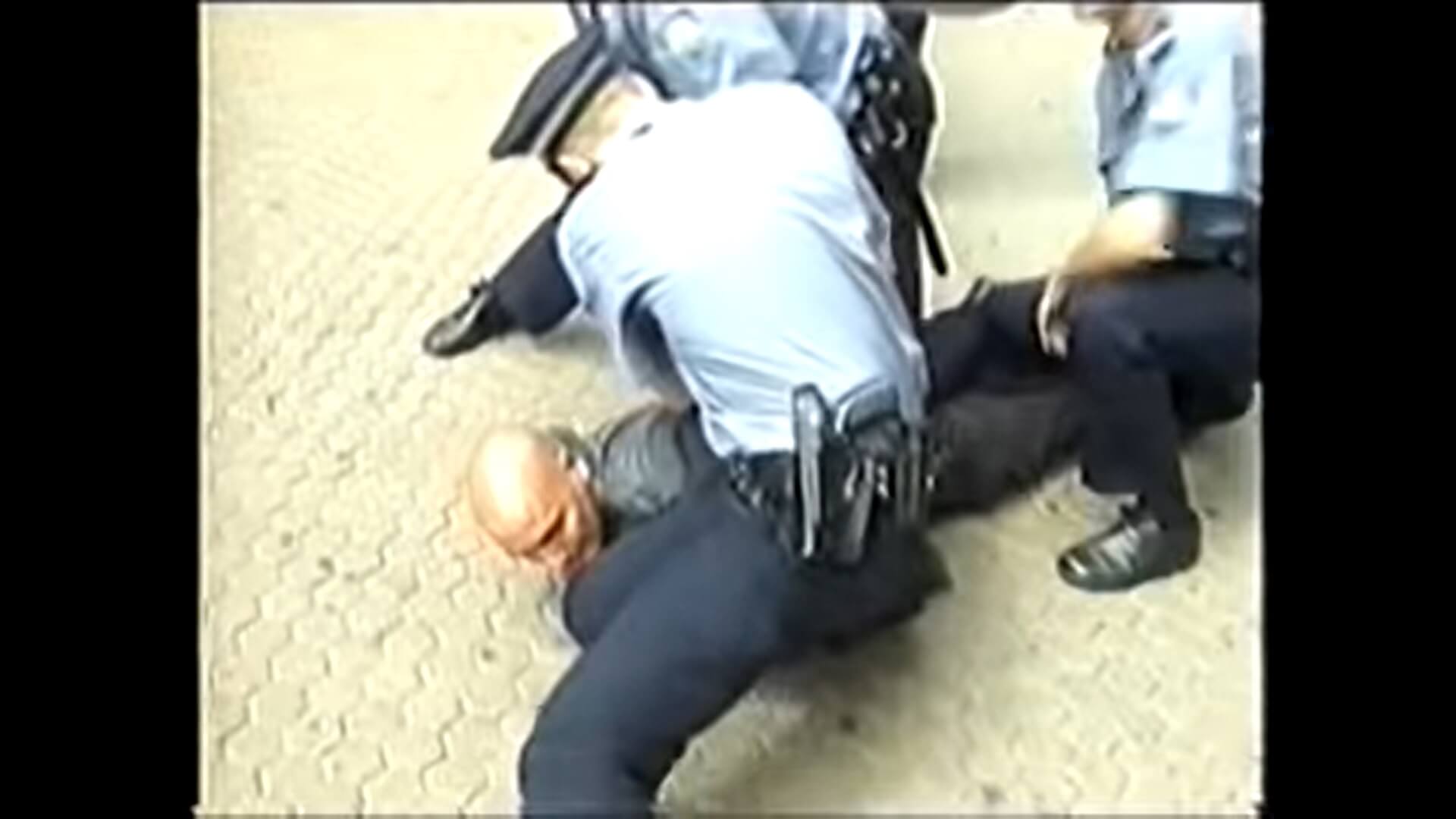
Police arresting violent skinhead at the first Zagreb Pride in 2002, screenshot / Zagreb pride
But, at least for Zagreb, the situation got better and more open. Today, pride is the forthcoming celebration of love and freedom, and entire families can be seen to join the picnic at Ribnjak park to teach their children tolerance and that people are not sick or different from others because of their sexual preference. Other larger cities in Croatia, such as Split, slowly but surely, do follow that path too, and Rijeka, the pinnacle of liberal Croatia, is also a very gay-friendly city.
Of course, a political counterstrike is expected and quite strong. The first most notable one was the 2013 referendum, where it was voted that the Croatian constitution declares marriage as a „community between a man and woman“. The goal was to deny LGBTQ couples the same rights as enjoyed by straight people.
However, the bill on life partnership outplayed that attempt.
In the meantime, LGBTQ couples can also adopt children in Croatia, as Constitutional Court concluded that gay couples fostering children is not against the Croatian Constitution.
That decision and along with the general openness of Croatia towards LGBTQ was followed by a controversial carnival in Imotski where an effigy of a gay couple was burned. President Zoran Milanović demanded an apology from the organizers, and SDP's MP Arsen Bauk filed charges against the organizers.
Counting pluses and minuses, the report on Croatia being the 39th best country for LGBTQ visitors still seems to uphold. No changes for the better, but at least Croatia is still in the top third for this category of tourists.
Haters strike back
2020 and 2021 sadly saw the uprise of violence towards LGBTQ in the Croatian capital. Apart from the occasional tearing down or burning of the rainbow flag, Croatia was shocked with an attempt of burning a man in Maksimir Forest Park as well, with his sexual preference being the sole motive for the attack.
On the other side, this year's pride felt to start stronger than ever. The newly elected mayor Tomislav Tomašević joined the parade, along with stating that Zagreb is a city that is open to everyone. This year arranged a bit differently to adhere to corona measures; around 2500 participated in the event.
„Twenty of our prides made our city and our republic a better, more democratic, and joyous place for the life of all citizens“, was the main message of the 20th edition of Zagreb Pride.
As reported by Index.hr, the Zagreb Pride association representatives stated that the Croatian LGBTIQ community „became a powerful, responsible and self-aware part of the country, but that the fight isn't over“.
„Our constitution and our laws still do not include in a complete and fair way. Our streets and squares are still not free of hate. We didn't forget nor we will forget victims of homophobic and fascist rampage in this year and all previous years“, stated Zagreb Pride.
Sadly, while Pride itself went without issues, participants of the pride who walked the streets of Zagreb after pride with rainbow flags faced a series of physical attacks on several locations in Zagreb.
A week ahead of Pride, conservative MOST Party parliament member Nikola Grmoja complained that commercials displayed during EURO 2020 commercials were LGBTQ propaganda and that kids need to be protected from it and announced that he might include it in his anti-pedophile package. Grmoja's statement caused strong disagreements among the Croatian public, with several people (including celebrities) teasing him that if he wants to start battling pedophilia, he should start from church (as Grmoja is quite clerical). Božo Petrov, president of the MOST party, added more fuel to the fire when he supported Grmoja, stating that „minorities can't dictate what my children can learn in school“. He added that minorities need to be aware that they are minorities and that „we tolerate that," sparking more enrage from the public, with many comparing MOST to the controversial Hungarian Prime Minister Viktor Orban.
Zagreb Pride linked the post-Pride physical attacks with Petrov and Grmoja's public statements, and Petrov and Grmoja announced they would sue Zagreb Pride for slender.
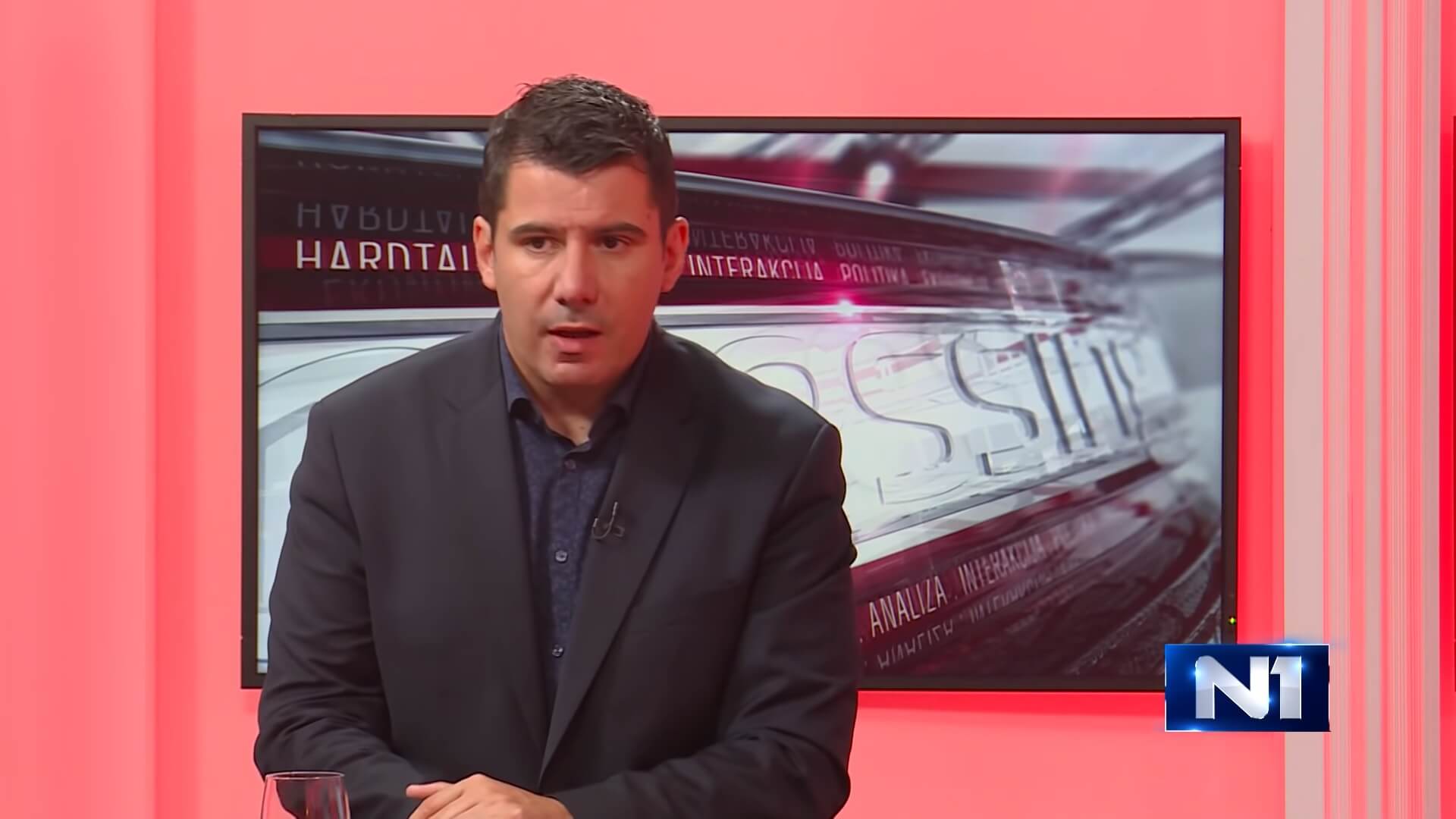
Nikola Grmoja, screenshot N1
The Law: "Gay is OK". Popular opinion: "Do it in your homes, not on the streets".
In this political escalation, what does the average Croatian think? Looking at the comments on social networks, it seems the majority of Croatians don't mind gays being gays and living how they like (even if they are not always happy with legal rights the LGBTQ community received). But, one sentiment in that „tolerance“ is particularly worrying.
„Live in your house however you want it. You don't have to wave around, like its a best thing ever“, said one of the online comments on Index.hr beneath the news on Petrov and Grmoja.
So it seems the public does not understand why Pride is important. First of all, as evident, the political climate is such that the battle for equality truly isn't over in Croatia, and Pride is the best way for the community to express what issues LGBTQ still face in Croatia. Additionally, pride month is also educational and supportive, and public presence show to other people who feel the same that they are not alone, as they might feel lonely and unable to find people who feel the same in everyday life.
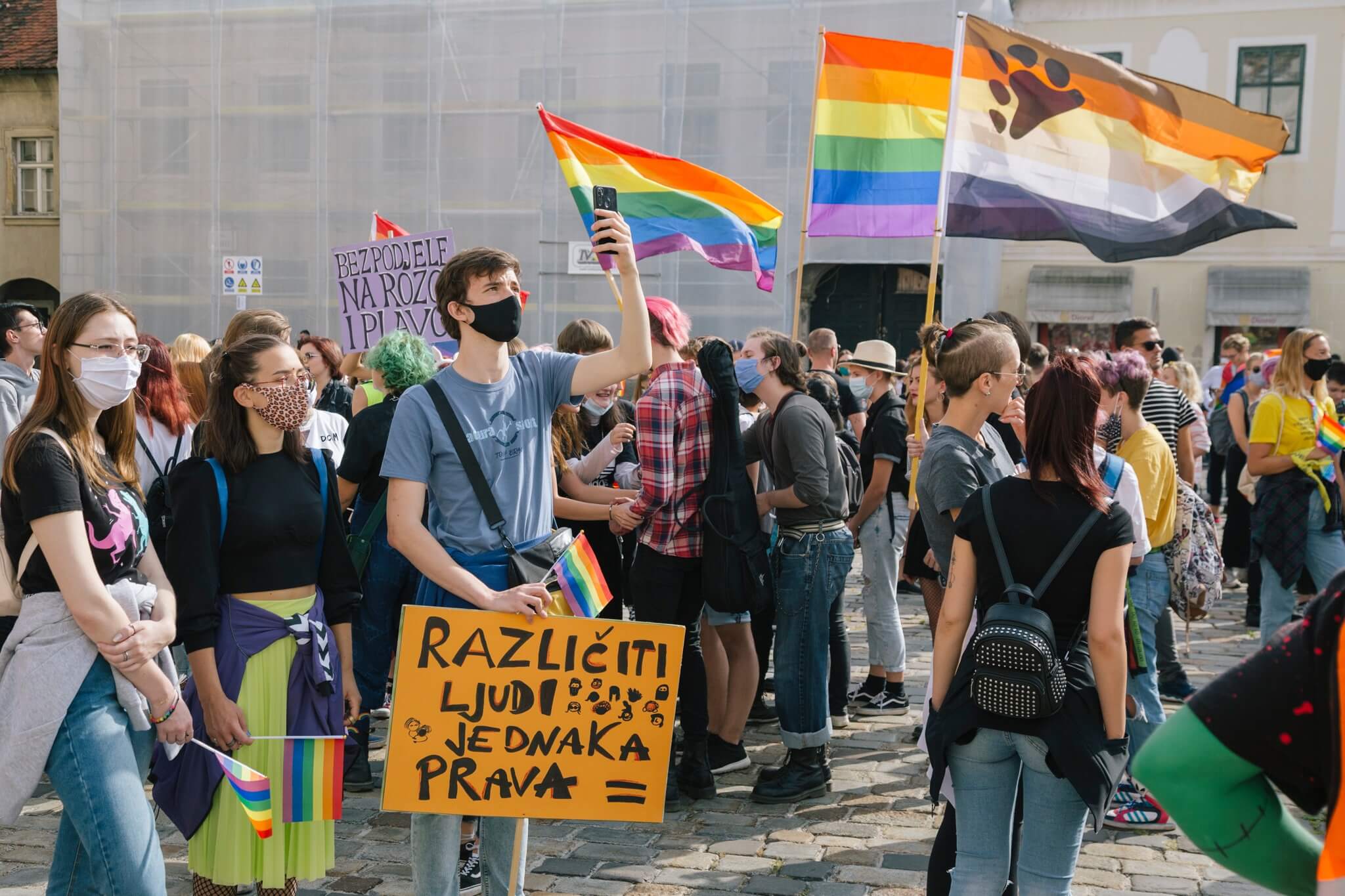
© Zagreb Pride
But, even if the law and constitution give the same rights and solves the problem of intolerance of LGBTQ people completely, does that mean that Pride should then be canceled? Well, Croatia won its independence and the war in the nineties. Does that mean we should stop commemorating the Homeland War? Or is it nice to honor and celebrate the victory and triumph over all obstacles Croatia had to face in its independence? Pride is a cultural, commemorative event honoring those who were or still are victims and oppressed for their sexual preference, either in Croatia or in the world. Croatia is a democratic country. Every group, national, ethnical, racial, religious, etc. should have the right to gather and honor its heroes. The right to gather and honor its tragedies and their dates and connect with other people who feel the same. If political elites are so concerned with keeping Croatians in Croatia, then they can't afford to discriminate or attack part of Croatian society solely based on their sexual preference. A preference that, unlike being violent or intolerable, can't be chosen.
Learn more about LGBT rights in Croatia and what LGBT tourists should know on our TC page.
For more about LGBT in Croatia, follow TCN's dedicated page.
Highlights of the Week: 5 Big Events in Croatia from June 28-July 4
June 3, 2021 - TCN's highlights of the week. A look at the events in Croatia from June 28 through the selection of TCN's reporter Ivor Kruljac.
EURO 2020 elimination and Dario Šarić in the NBA finals. Zagreb witnessing a series of arrests related to corruption of Milan Bandić's reign and explosive device planted in Split. In the midst of it all, is COVID-19 vaccination on its way to becoming obligatory and not optional? You may prefer the good news or the bad news, but here is both, as another week in Croatia comes to an end.
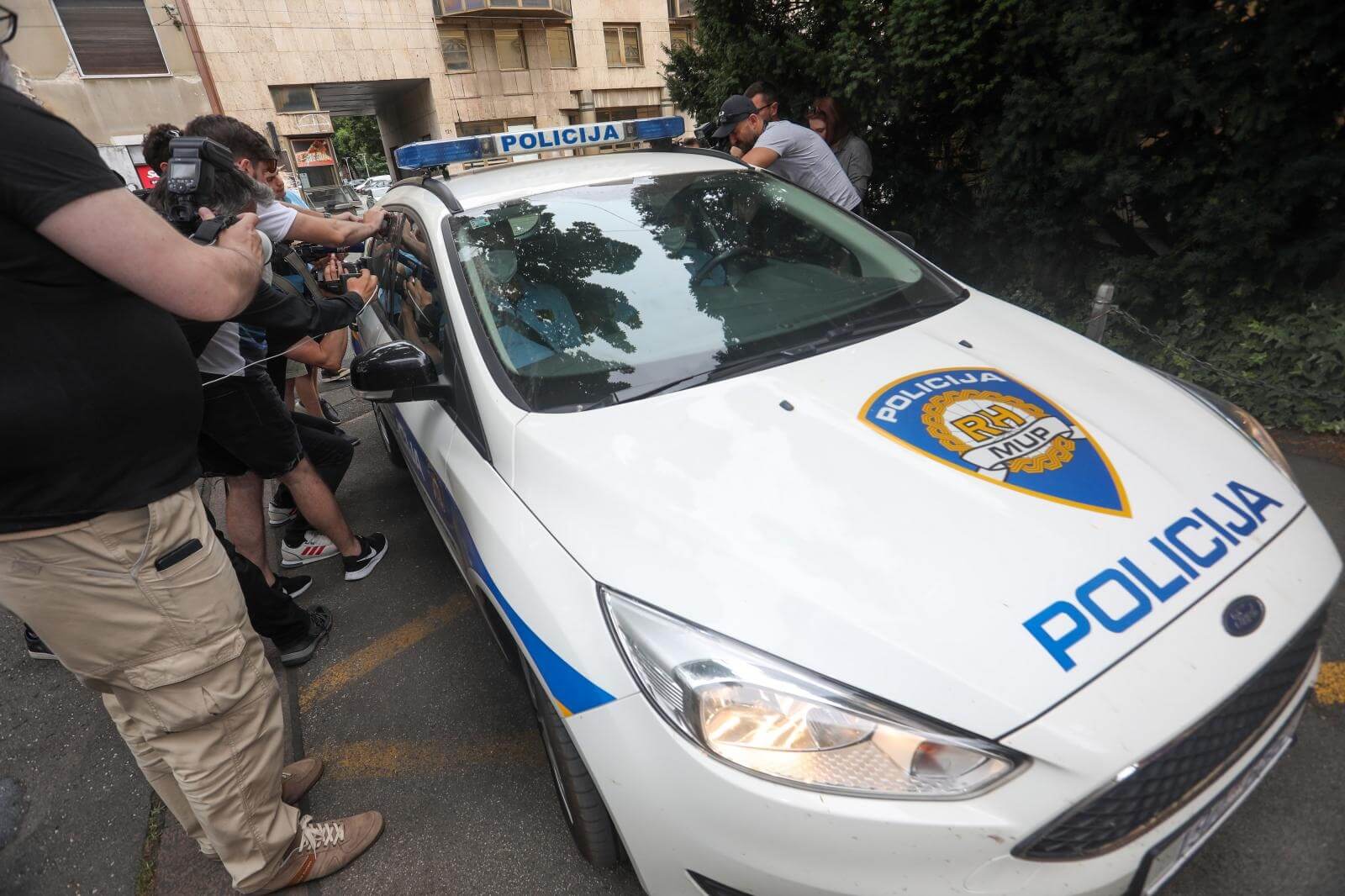
© Marin Tironi / PIXSELL
Highlights of the week: Uskok arresting Zagreb entrepreneurs and associates of former mayor Milan Bandić
The Office of Zagreb Mayor Tomislav Tomašević said on Wednesday that a preliminary investigation by members of the Office of the Chief State Prosecutor and the Office for Suppression of Corruption and Organised Crime (USKOK) started at the city administration offices at 6 am on Wednesday.
As TCN wrote, several people were arrested on suspicion of corruption, including the director-general of the HRT public broadcaster, Kazimir Bačić, Andrea Šulentić, and Ana Stavljenić-Rukavina. Both Šulentić and Rukavina were directors in Zagreb administration offices and close associates of former mayor Milan bandić. At the same time, details Bandić's heavy corruption (suspected and known publicly earlier) came to light.
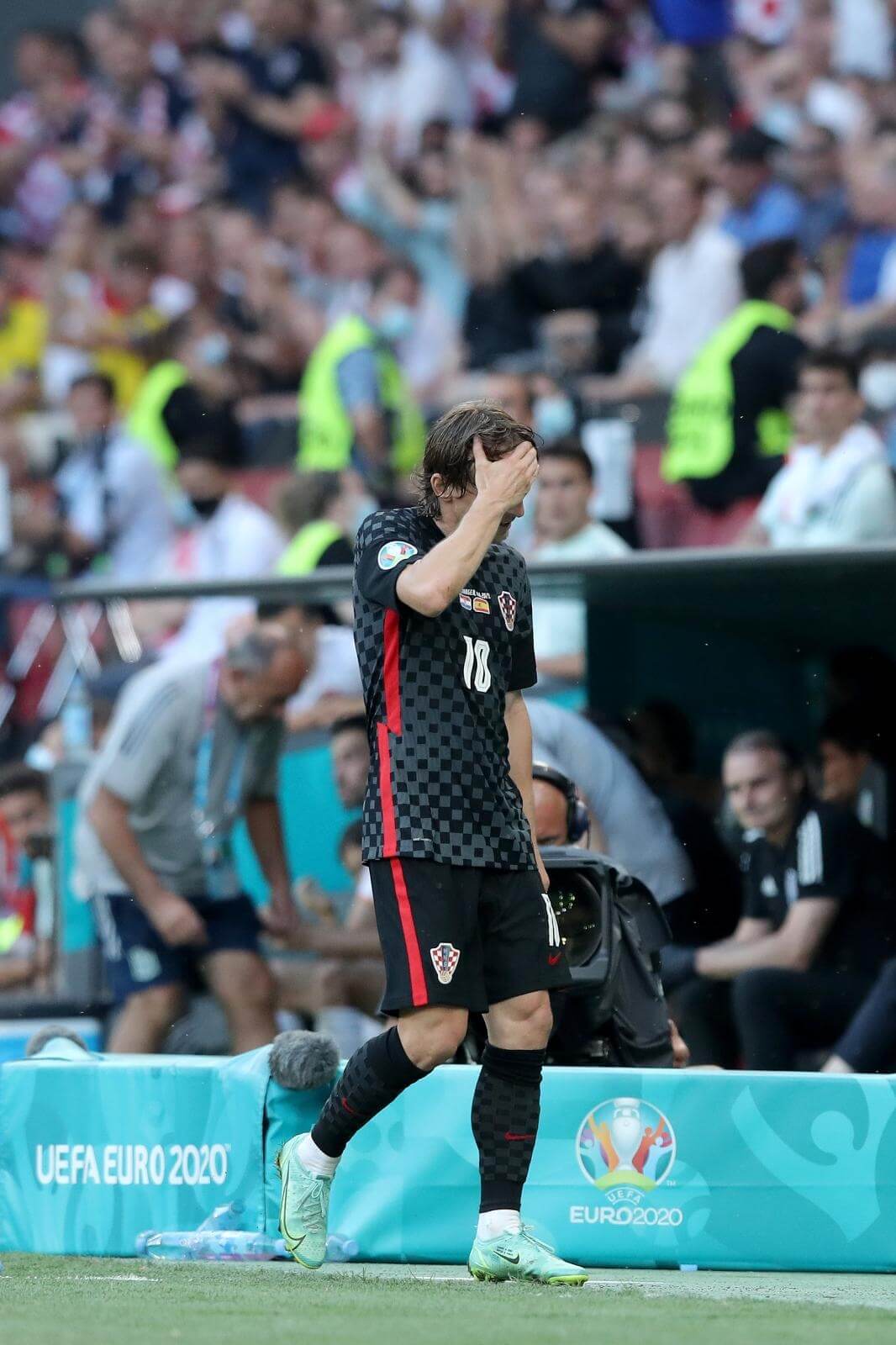
© Goran Stanzl / PIXSELL
Highlights of the week: Croatia eliminated from Euro 2020 after losing to Spain
Croatia and Spain met in Copenhagen on Monday for their EURO 2020 round of 16 match. It was a decent effort from Croatia, but not enough. Despite the Spain own goal in the 20th minute, the distraction as Rebić went to change his boots saw Spain even the score. The score towards the end of regular time went to 3:1 for Spain, but Croatia managed to lower to 3:2 and finally, in the added time, Pašalić scored for 3:3.
But, the euphoria was ruined for Croatia as in extra time, Morata earned Spain 4:3, and by 103rd minute, the total and final score was 5:3 for Spain. It was one of the more intense games on Euro so far as both teams show incredible spirit and persistence.
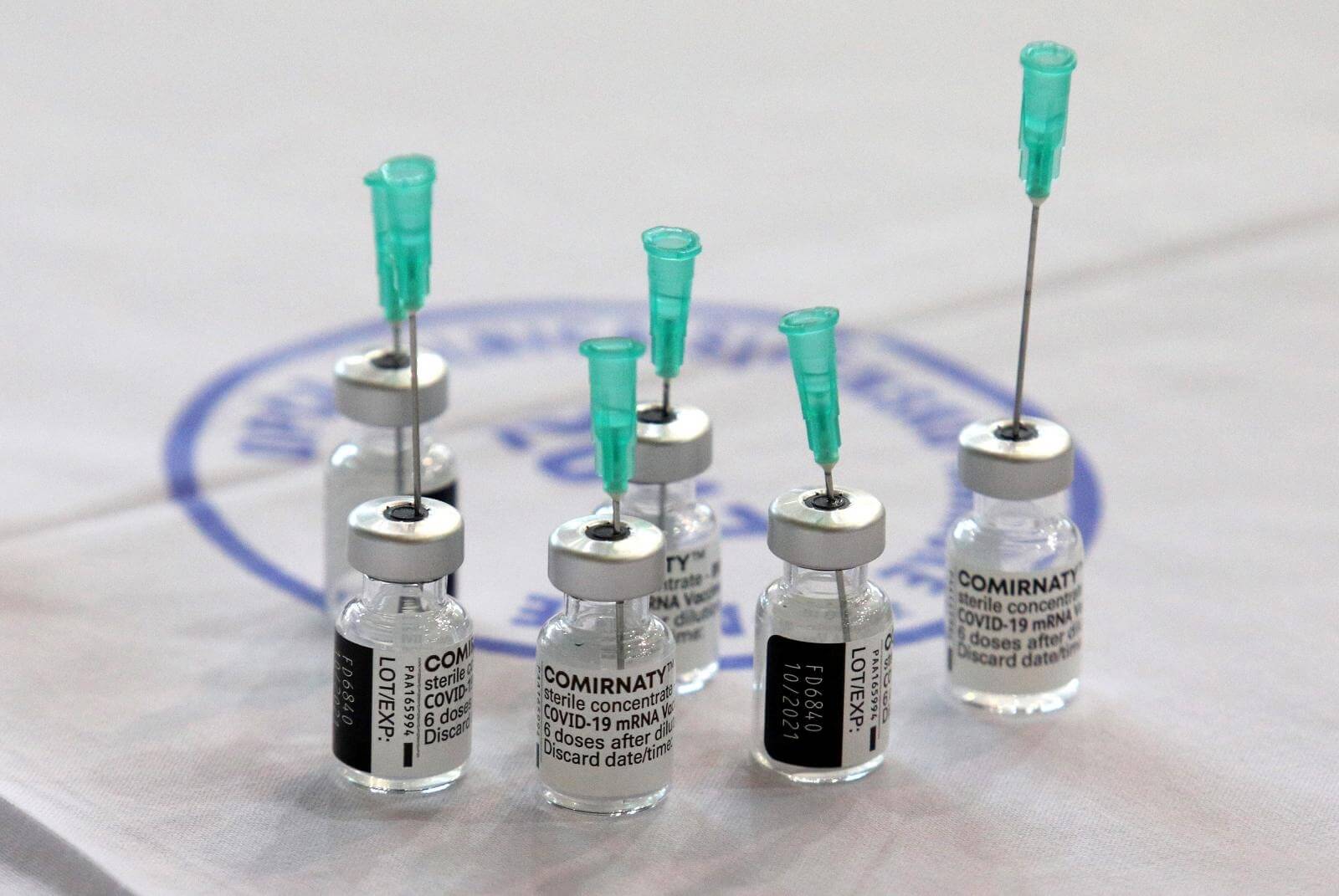
© Dusko Jaramaz / PIXSELL
Highlights of the week: Opposition parties against vaccination being required for job-keeping payments
The Social Democratic Party (SDP) called on Prime Minister Andrej Plenković on Thursday not to make vaccination a requirement for job-keeping payments, while the Most party said business owners were being blackmailed into vaccination.
As TCN reported, SDP leader Peđa Grbin elaborated his dissatisfaction via social networks.
"In Croatia, mandatory vaccination is possible, but the obligation is first established under the law on the protection of the population and then regulated and worked out under Immunisation Rules and the Mandatory Vaccination Programme. The obligation of vaccination can't be imposed in another way, notably not by linking support for entrepreneurs with vaccination," SDP president Grbin posted on Facebook.
"Most is against entrepreneurs, who are being forced into vaccination through blackmail, saving the government's mindless epidemic policy", stated the Most party on its official Twitter account. They added that Croatia was stuck with over 300,000 surplus vaccines because of poor government moves and communication omissions.
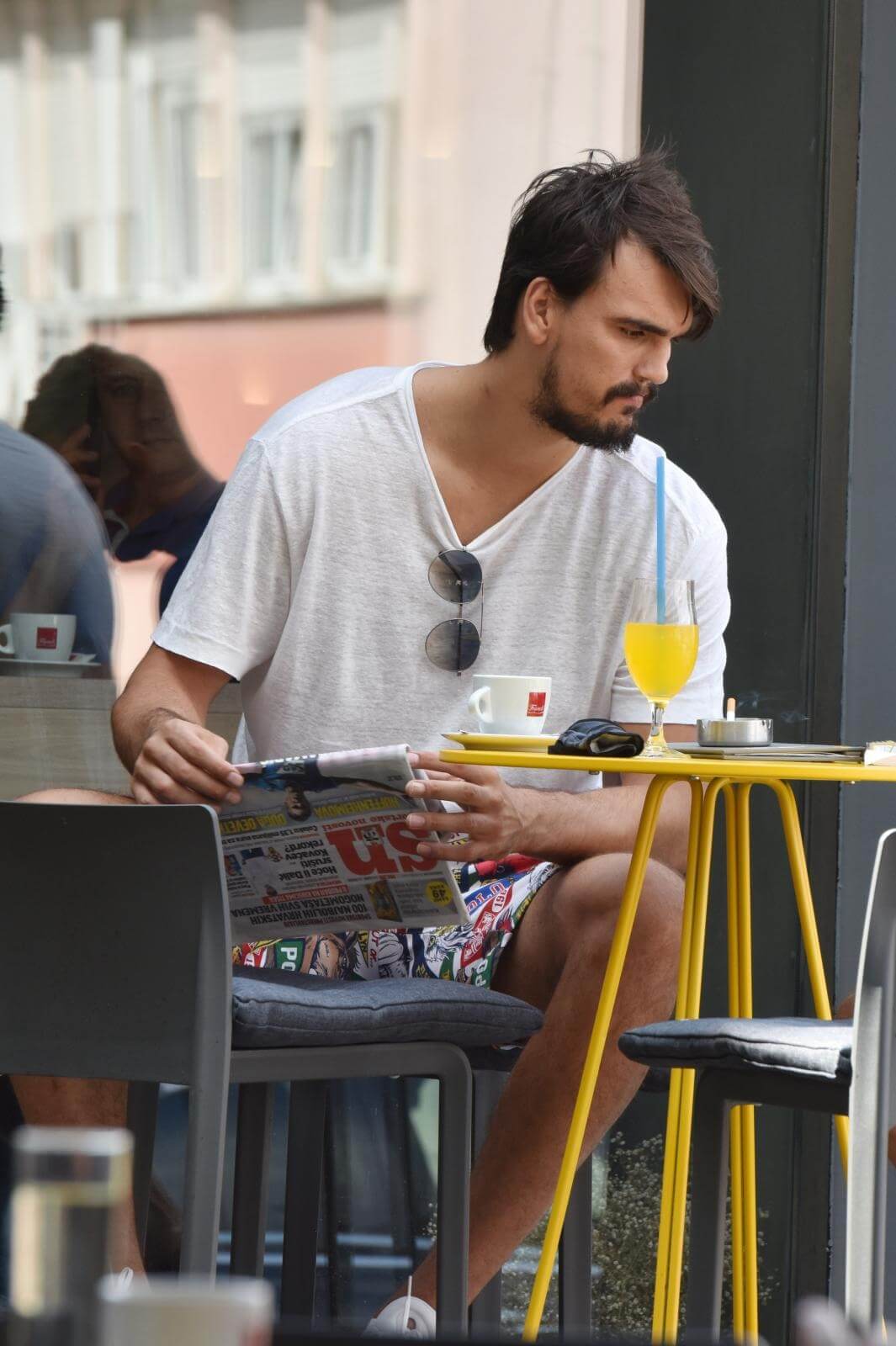
© Hrvoje Jelavic / PIXSELL
Highlights of the week: Dario Šarić becomes 5th Croatian basketballer in the NBA finals
Šibenik's Dario Šarić is the 5th Croatian basketball player to reach the NBA finals! As TCN wrote, Šarić became only the fifth Croatian basketball player in the NBA league finals, joining the company of Dražen Petrović, Toni Kukoč, Žan Tabak, and Ante Žižić. Šarić plays for Phoenix Suns. They topped the Los Angeles Clippers 4-2 in the NBA Western Conference Finals. Apart from basketball, Šarić also likes to enjoy sipping coffee on Šibenik cafe terraces, as portrayed in the photo.
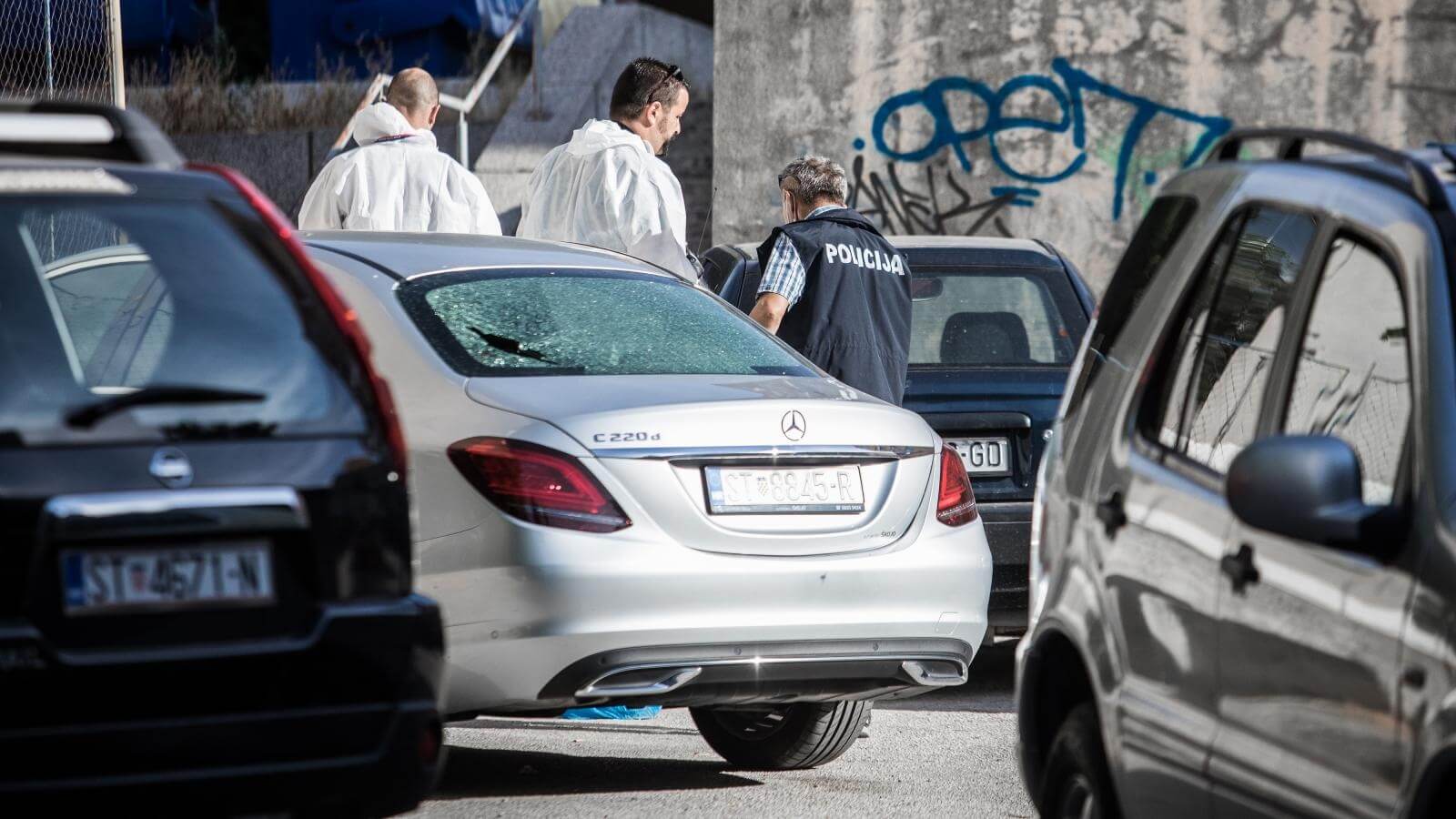
© Milan Sabic / PIXSELL
Highlights of the week: Bomb planted in Split. One person injured
In the night from Thursday to Friday, an unknown person placed an explosive device underneath a vehicle. The explosion damaged six cars, and one person required medical attention. The investigation is ongoing since Friday morning.
To learn more about Croatia, have a look at our TC website.
For more about news in Croatia, follow TCN's dedicated page.
Agreement Reached Between Govt, Unions and Protesting Orljava Workers
ZAGREB, 30 June, 2021 - An agreement was reached on Wednesday between two trade unions, workers of the Požega-based Orljava company and the government on three monthly wages in arrears to be paid and on efforts to be made to find a new strategic partner for this clothes company.
Construction and State Assets Minister Darko Horvat received the workers after they held a protest rally outside Government House on Wednesday, demanding talks with the government's representatives.
After the meeting Horvat said that there was no need for the protest to have been held because the government had already taken certain steps in reference to the fate of the Orljava company.
"The government is not running from its obligations. Workers will get their three outstanding salaries in accordance with the law. I promised them that they would get their pay in the next 10 days," Horvat told reporters in Government House.
Horvat: We insist on finding a strategic partner for Orljava
He said that the government is not thinking of liquidating the company but is insisting on finding a strategic partner. We think that there is no other way out. We have launched very intensive talks with Hemco from Đakovo, he said.
Hemco is specialised inn manufacturing protective clothes.
"At the moment, all the conditions that the government has set for Hemco have not been met for it to take over Orljava, until we negotiate the final details as there is still one small uncertainty," said Horvat.
He announced that a hearing has been set for Friday when Orljava will be assigned with a trustee.
Union leader Tomislav Kiš said that they found common ground with the government and established common stances, objectives and wishes.
For more about politics in Croatia, follow TCN's dedicated page.
Croatian National Bank (HNB): Current Account Balance Payment Runs €1.26bn Deficit in Q1
ZAGREB, 30 June, 2021 - The current account of the balance of payments ran a deficit of €1.36 billion in the first quarter of 2021, thus narrowing the gap by €23.3 million or 1.7% from the same period of 2020, according to figures the Croatian National Bank (HNB) released on Wednesday.
A surplus on the capital account increased by 20.9% or €45 million in Q1 to €260 million.
As a result, the balance of payments of the current and capital accounts in Q1 generated a deficit of €1.1 billion, which is €100 million less than in the corresponding period in 2020.
"That improvement is exclusively the result of the surplus in the secondary income and capital transaction accounts due to a marked increase in net income from transactions with the EU budget. The favourable trend of absorbing EU budget funds, however, on the most part were annulled by a pronounced deterioration of balance of primary income accounts and, to a lesser extent, by the decreased net export of services," according to HNB analysts.
For more about business in Croatia, follow TCN's dedicated page.
Time to Strengthen Trade And Investments Between USA and Croatia - Conference
ZAGREB, 30 June, 2021 - The imminent visa waiver for Croatian citizens and the advanced negotiations on double taxation avoidance, are a good basis to strengthen trade and investments between the USA and Croatia, it was said on Wednesday at a conference on doing business in the U.S. market.
The hybrid conference was organised by the Croatian Employers' Association (HUP) in cooperation with the US Embassy in Croatia and two consulting companies -- the Armatus Prudentia and Trans-Atlantic Market Development -- which are engaged in helping Croatian businesses to come out on the US market.
The US Embassy's charge d'affaires, Mark Fleming, said that the US continued to be the best place for doing business in the world. With a market of 325 million consumers it is the most attractive and strongest consumer market in the world and it can help companies to build global success.
Fleming underscored Croatia's progress towards the aim of having the U.S. visa waiver program being applied on its citizens as well as the advanced negotiations on concluding a double taxation avoidance agreement.
It's time to strengthen bilateral trade and investments, the diplomat said and added that he expects more Croatian companies to explore the possibilities of doing business on the American market in the years to come.
He said that some Croatian companies were already doing business on the US market such as Infobip, Five, Infinum, HS Produkt, Šestan Busch, Dok-Ing and others.
HUP president Mihael Furjan thanked former US ambassador Robert Kohorst because huge steps were achieved during his ambassadorial term and as a result a double taxation avoidance deal should be signed soon.
Croatia mostly exports medicine and handguns to USA
Furjan said that Croatia's exports to the US were relatively low, and mostly involved medicine and handguns, however, there were at least 50 IT companies doing serious business in the USA.
"If you wish to come out on the global market to develop business then the most important step is entering the US market...if you succeed there you will succeed anywhere," said Furjan, underscoring the importance of competitiveness, cost efficiency and good ideas aimed at attracting consumers.
There are huge American investments in Croatia which are not that evident because many are coming via the Netherlands due to efforts to avoid double taxation, he said.
Businessman: easier to do business in USA than most European countries
Emir Avdić of the Trans-Atlantic Market Development company confirmed that the most popular pistol in the US is the one produced by HS Produkt in Croatia.
Avdić claimed that it is easier to do business in the US than most European countries. The US is known for its minimal red tape and it is quite easy and cheap to launch a business there, he added.
He cited low import tariffs compared with other markets, access to global supply chains which could facilitate accessing other markets like Canada and Mexico as advantages..
Mauro Lukić from the Croatian, Armatus Prudentia consulting firm said that the conference has motivated Croatian businesses to internationalise their business.
The wish is to strengthen economic relations with the USA, said Lukić, expressing hope that this will add a new rhythm and impact a gradual growth of Croatia's economy.
For more about politics in Croatia, follow TCN's dedicated page.
Croatia-Slovakia Scientific Cooperation: Conference in Zadar Continues Academic Friendship
June 30, 2021 - In 2019, an agreement was reached on the start of the Croatia-Slovakia scientific cooperation. The June 18 conference held at the University of Zadar presented the current progress in that agreement.
Along with countries such as Serbia, Slovenia, and Northern Macedonia, Croatia is a south Slavic country. The former Socialistic Federation of Yugoslavia got its name because of southern Slavs, a branch of Slavs, ethnolinguistic groups that arrived in Europe along with many other groups in what history remembers as the „Migration Period“, when Europe was dominated by the Western Roman Empire.
Other Slavic countries include Russia, Poland, Bulgaria (also south-slave, but not part of Yugoslavia), Czech Republic, Ukraine, Belarus, and also West Slavic country, Slovakia.
Sharing ethical and cultural heritage and diplomatic relations (formed on March 1, 1993), saw the intellectual cooperation with Slovakia raised on a high level and produced so much material, it required an entire scientific conference.
As reported by Ivo Pilar Social Research website, June 18 saw Zadar University host a conference „Intellectual relations of Croatia and Slovakia“, prepared by Slovakian-Croatian Board for Humanistic Sciences lead b professor Martin Homza from Comenius University in Bratislava and Ivo pilar Social Research Institute headmaster dr. Željko Holjevac.
The conference was supposed to be held last year but was canceled due to coronavirus, and the 2021 edition was managed in a hybrid model of the event, mixing live and online ways for participants to meet. Twelve Slovakian and Croatian scientists reported on the theme, and key Slovakian and Croatian players on the subjects of education attended and made speeches at the opening ceremony. This includes professor Zvjezdan Penezić, Zadar University's vice-chancellor. Peter Susko, Slovakian Ambassador in Croatia, Marián Zouhar, dean of the Bratislava's Faculty of Humanities and Social Sciences, Staša Skenžić from Croatian Ministry of Science and Education, as well as Martina Klofáčova from the Slovakian Ministry of Science and Education.
„Slovakian-Croatian Board for Humanity Sciences is active since 2019 as part of the program of collaboration between two ministries for science and education with the goal of developing bilateral scientific and educating activities in the field of history, linguistics, Latinism, art history, ethnology, and archaeology“, informed Ivo Pilar Social Research Institute about the program goals.
Is there a Croatian diaspora in Slovakia? Yes. You can learn more about the Croatian diaspora on our TC page.
For more about science in Croatia, follow TCN's dedicated page.
USKOK Investigators Conducting Probe in Zagreb City Administration Offices
ZAGREB, 30 June, 2021 - The Office of Zagreb Mayor Tomislav Tomašević said on Wednesday that a preliminary investigation by members of the Office of the Chief State Prosecutor and the Office for Suppression of Corruption and Organised Crime (USKOK) started at the city administration offices at 6 am on Wednesday.
Tomašević said in a brief press release that the new city administration fully supported the independence of state institutions and would continue advocating the transparency of work of the city administration, all city departments, companies, institutions and the related businesses.
Media say HRT director arrested
Several people were arrested on Wednesday morning on the suspicion of corruption, including, according to media reports, the director-general of the HRT public broadcaster, Kazimir Bačić.
USKOK and police have not confirmed these reports, but media say that the suspicion of corruption refers mostly to transactions of the previous Zagreb city administration at the end of 2020 and in the first half of 2021.
Bačić was allegedly arrested over a suspicious contract he signed on behalf of HRT with the Tvornica Žarulja light bulb factory.
For more about politics in Croatia, follow TCN's dedicated page.
President Zoran Milanović Holds Working Meeting With Croatian Mountain Rescue Reps
ZAGREB, 29 June, 2021 - President Zoran Milanović held a working meeting on Tuesday with members of the HGSS mountain rescue service, with its leaders informing him of the HGSS's structure and the way it provides assistance to people in areas affected by earthquakes and floods.
They also informed Milanović of the preparations for the tourism season, saying that each year, the HGSS has a large number of interventions, the President's Office said in a press release.
HGSS is a voluntary, non-profit, humanitarian, national service, it was said at the meeting. It conducts rescue operations but its mission also includes prevention and education. The service numbers 1,100 members, and they are all volunteers who annually conduct about 1,000 interventions throughout Croatia.
HGSS was founded in 1950 and it marks its day on 15 June, the Feast of St. Bernard, the patron saint of mountain climbers and mountain rescuers.
For more about politics in Croatia, follow TCN's dedicated page.


